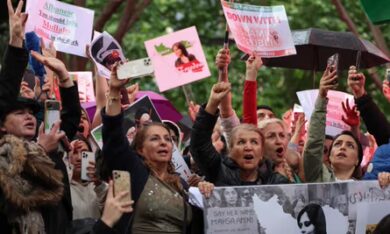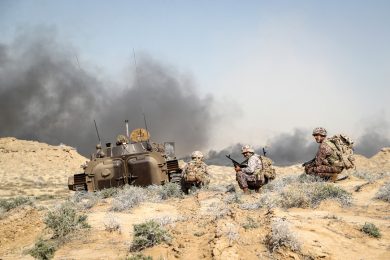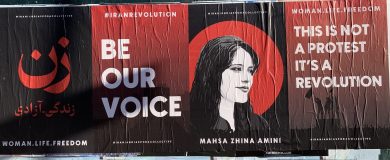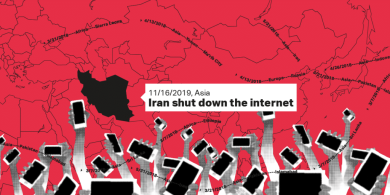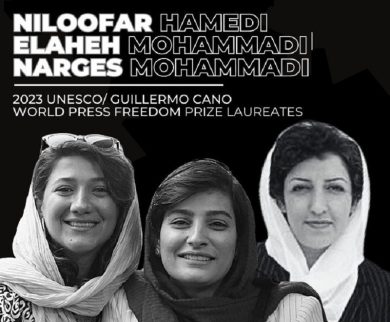As Iran faces one of the most widespread and determined resistance movements in its modern history—led notably by women, youth, and marginalized groups—the regime has responded with a campaign of systematic violence, censorship, arrests, and executions. The Islamic Revolutionary Guard Corps (IRGC) remains the central arm of this crackdown, deploying state-sanctioned force to silence dissent and crush civil liberties.
But as images of women burning hijabs, youth facing down armed forces, and prisoners of conscience languishing in jails make their way to the world stage, the spotlight turns to a critical question: What has the international community done in response?
The answers lie somewhere between sanctions, silence, and solidarity—a mixed bag of action, inaction, and moral positioning. This article explores each of these elements, assesses their effectiveness, and proposes a path forward for the global community to meaningfully support Iran’s struggle for justice and freedom.
1. The Crackdown: Inside Iran’s Machine of Repression
Since the 2022 killing of Mahsa Amini, the IRGC and other security apparatuses have responded to protests with:
• Mass arrests, targeting women, journalists, students, and activists.
• Executions of young protesters after forced confessions.
• Internet shutdowns to prevent the spread of information.
• Censorship and propaganda, painting dissent as foreign conspiracy.
The IRGC, deeply entrenched in Iran’s economy and politics, acts with impunity, knowing few international consequences will follow. This impunity fuels the urgency of a robust and consistent international response.
2. Sanctions: A Double-Edged Sword
Targeted Sanctions: Punishing the Right People
The United States, Canada, UK, and the EU have imposed human rights-related sanctions against IRGC officials and institutions. These have included:
• Travel bans and asset freezes.
• Technology restrictions, especially those used for surveillance.
• Sanctions on media outlets, morality police, and military commanders.
These actions send a message: Those responsible for repression will be held accountable.
The Limits and Consequences of Broad Sanctions
However, broad economic sanctions—especially on oil and banking—have often hurt ordinary Iranians more than the elite.
• Inflation and currency collapse disproportionately affect low-income families.
• Medical imports and daily essentials become scarce.
• The regime blames the West for the crisis, using it as propaganda.
This raises an ethical dilemma: Can sanctions target the regime without harming the people? The answer lies in smarter, more surgical sanctions that hit the IRGC’s financial empire—not Iran’s civil society.
3. Silence: The Cost of Inaction and Selective Outrage
While some nations have taken a stand, many others—including global powers—have remained largely silent, offering statements without substance.
Why the Silence?
• Geopolitical interests: Negotiations over the nuclear deal (JCPOA) often take precedence over human rights.
• Economic ties: Countries with trade interests may be hesitant to jeopardize relations.
• “Stability” narrative: Some governments fear regime change in Iran could destabilize the region further.
This silence is not neutral—it emboldens repression. When the world ignores executions, lashes, and censorship, it sends a dangerous message: Your suffering isn’t our priority.
4. Solidarity: From the Streets to Social Media
In contrast to state silence, civil society worldwide has responded with powerful shows of solidarity.
Global Protests
• Mass rallies in Berlin, Paris, London, Toronto, Los Angeles, and beyond.
• Demonstrations led by the Iranian diaspora, women’s groups, human rights organizations, and students.
Social Media Movements
• Hashtags like #WomenLifeFreedom, #MahsaAmini, and #FreeIran have trended globally.
• Influencers, celebrities, and public figures have raised awareness.
This digital and street-level support has:
• Amplified Iranian voices.
• Pressured governments to act.
• Kept the spotlight on IRGC atrocities when traditional media coverage waned.
5. What’s Working—and What’s Not
Effective Actions So Far
• Targeted sanctions on IRGC commanders and cyber-surveillance firms.
• The UN Women and Amnesty International’s statements supporting Iranian women’s rights.
• Awarding the Nobel Peace Prize to Narges Mohammadi, signaling global recognition.
What’s Still Missing
• Official terrorist designation of the IRGC by the EU and other key players.
• Coordinated action across democracies to freeze IRGC-linked assets abroad.
• Legal support for Iranian activists and journalists under threat.
• Humanitarian pathways (visas, asylum) for targeted dissidents and families.
6. The Role of the Diaspora
The Iranian diaspora—spread across North America, Europe, and beyond—has played a key role in:
• Organizing international protests.
• Lobbying governments for stronger actions.
• Funding independent journalism and legal aid for Iranian activists.
They serve as a bridge between Iranian struggles and global institutions, and their voice is vital in shaping the international agenda.
7. A Path Forward: What the World Must Do Now
1. Designate the IRGC as a Terrorist Organization
This step has already been taken by the United States. It’s time for the EU, UK, and others to follow. The IRGC is not just a domestic enforcer—it funds proxy militias, terror networks, and global disinformation campaigns.
2. Protect and Amplify Iranian Voices
• Offer asylum and fast-track visas to at-risk activists.
• Support independent Persian-language media to counter regime propaganda.
• Amplify stories from Iranian women, LGBTQ+ communities, and ethnic minorities facing persecution.
3. Strengthen Smart Sanctions
• Sanction IRGC-linked companies, shell corporations, and front businesses.
• Protect humanitarian channels for medicine and aid.
• Penalize firms that sell surveillance tech to the regime.
4. Center Human Rights in All Diplomacy
Any engagement with the Iranian regime—including future nuclear negotiations—must be conditioned on human rights progress, not just technical compliance.
5. Keep the Spotlight On
• Governments should publicly condemn executions and detentions.
• Institutions must continue to recognize brave Iranian activists through awards, coverage, and platforms.
Conclusion: From Hashtags to Policy
The world faces a choice: Let the IRGC continue its brutal campaign in silence, or stand boldly with the people of Iran, especially the women who have become the soul of this revolution.
Sanctions alone are not enough. Silence is complicity. But solidarity, when matched with policy and principle, can change the course of history.
As Iranian women chant “Zan, Zendegi, Azadi”—Women, Life, Freedom—they are not just demanding a change in Iran. They are asking the world:
Join Our Newsletter!
Stay informed with the latest updates, news, and ways to take action in the fight for justice and global security. Sign up now to get updates delivered straight to your inbox!

